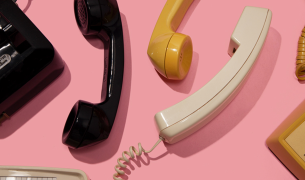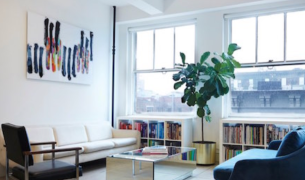This website uses cookies, by continuing to use this website you consent to the use of cookies.
Artist Feature: Frank Frances
The Charles Group spoke to Frank Frances about his experience as a Black artist working in NYC. Frank shared his thoughts on the racism he’s experienced his entire life, from childhood to adulthood, and now as a working professional.
The answers and feedback Frank gave us helped inform our understanding of how our industry has failed Black artists, and how our society has suppressed the opportunities of the Black community.
We were especially humbled by Frank’s response to our last question, where he articulates that Black artists do not simply want to be given work—they want to be given the same opportunity to earn it.
Our questions & his responses below:
Your work seems to exude a refined playfulness. Is there an energy or emotion that you seek to portray with your photography?
I make work in the emotional state of holding my hopes, anger, joy, and my personal traumas all to the same height of conscience. This helps me reframe most personal experiences into something productive. The playfulness is inherently how I cope with difficult memories that I may or may not have gone through personally but know others who have.
Can you talk a bit about some of the artwork that is on your website? Why is photography an important medium for you? What are the themes that you primarily focus on?
Photography/art has been a tool to transport me from the reality of poverty, racism in South Carolina in the 1990’s (less overt), and watching my mother who was a single mom of two kids while working 2-3 jobs until I was in college. I got my first camera from my mother’s friend, who was a wedding photographer and friend to Matthew Jordan Smith, who is a legendary celebrity photographer, around the same time I went to the South Carolina Governor’s School for the Arts for high school. Creating work for me is a byproduct of my mother’s hustle and what it means to focus so hard on something unimagined that it can only be found in a camera for me.
Themes in my work stem from home, personal products, and emotional coping. I photograph interiors because every place, detail, and story I’m a part of relates to what I wished life would have been growing up. Home for humans can be complex rainbows, emotion exists in my work because I carry a lifetime of desire to each project.
Has your experience as a Black male living in NYC had an effect on your approach to photography? Either conceptually or thematically?
As a Southern Black man, I’ve never been able to check my blackness “at the door”. New York hasn’t been any different, but it has allowed me the opportunity to live with joy, ambition, and having a keen sense of self-awareness to access. Access to museums, more established creative professionals, and constantly witnessing models of people who I’ve always wanted to be like. Conceptually as a Black male in NYC, I thought coming here would free myself of my own prejudice that I developed from early in life.
Being a living example of Black joy/creativity for my son, nieces, and nephews has become my most important theme, as the work I make is all relational—connecting in the most intimate ways through the home as it relates back to the complexity of lived experiences.
Who are artists that have inspired you? (Question written by Frank Frances)
Gordon Parks, Ezra Stoller, Jack Whitten, Kwaku Alston, Matthew Jordan Smith, Mickalene Thomas, Hank Willis Thomas, Kareem Black, Taryn Simon, Roe Ethridge, Lorna Simpson, Renee Cox, Tim Rollins, Gary Simmons, Blinky Palermo, Rashid Johnson, James Van Der Zee, Jai Lennard, and many more
At The Charles, we are now assembling a list of Black artists for hire in NYC, and seeking ways that we can practice equality in the creative industry. Which aspects of the creative industry do you feel require the largest reform when it comes to combating racism. And if you would like to share, what are the ways you feel this can be done?
I’m not sure if I agree with the idea: let’s hire Black talent now because it makes the company look more compassionate and relevant to the larger movement. That sentiment is inauthentic and think giving opportunities to put work toe to toe is more important because there is a huge gap in learning curves for certain levels of creative jobs. The highest level of creative content producers are primarily white because they’ve had access to learn over the years how to perform at high standards. Getting better training will help more than just hiring Black people until the world get’s back to whatever version of normal that will arise. This is not to say Black artists don’t exist at the highest level, because we are here, check out https://www.color-positive.com.There are copious amounts of mediocre white talent getting great work. Add people of color’s books to the mix of pitches, treatments, and mood boards, and there will be a natural gravitation towards the best work.
There’ve been countless times I’ve been on set to shoot a project and stylists, art directors, etc simply think I’m there to deliver something. Here’s an example: I was on a food video shoot and the stylist says “Hey, I’ve never worked with a Black photographer on a set.” This was 2018. Really, how is that possible? is all I thought. There are other photographers whom I admire greatly that I’m sure have had to go through harder emotional interactions.
Including Black or people of color in projects right now is a start but it creates skepticism because I hope it’s a full shift in our industry that lasts. Being a respected Black person in any field requires them to have to explain/justify why they belong—that has to end. Holding the consciousness of not disrespecting unconscious folks around the industry is exhausting and something I will not do again.
Help us continue the conversation.
Email us here about other Black artists to help us share their experiences, and do the work that needs to be done in our industry.



